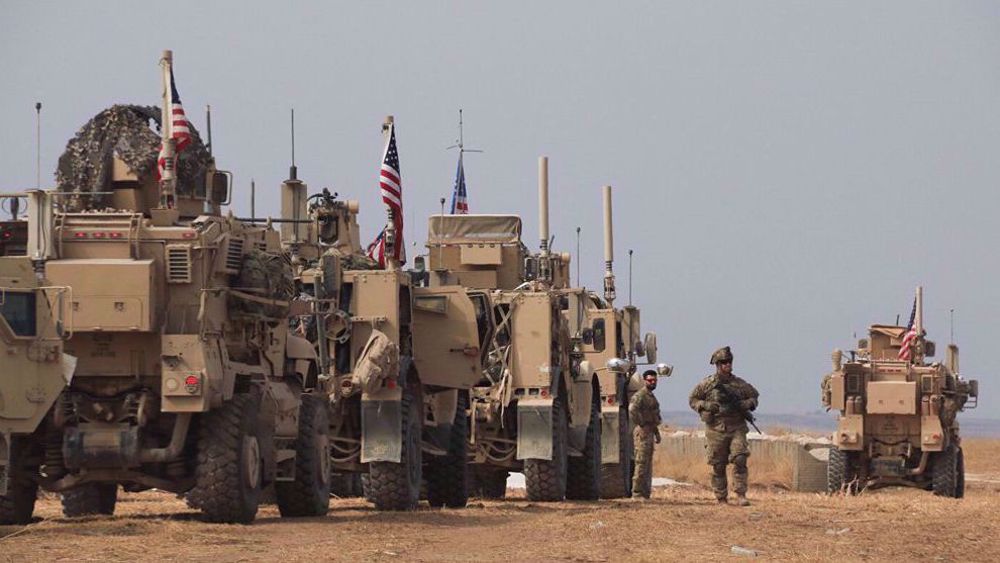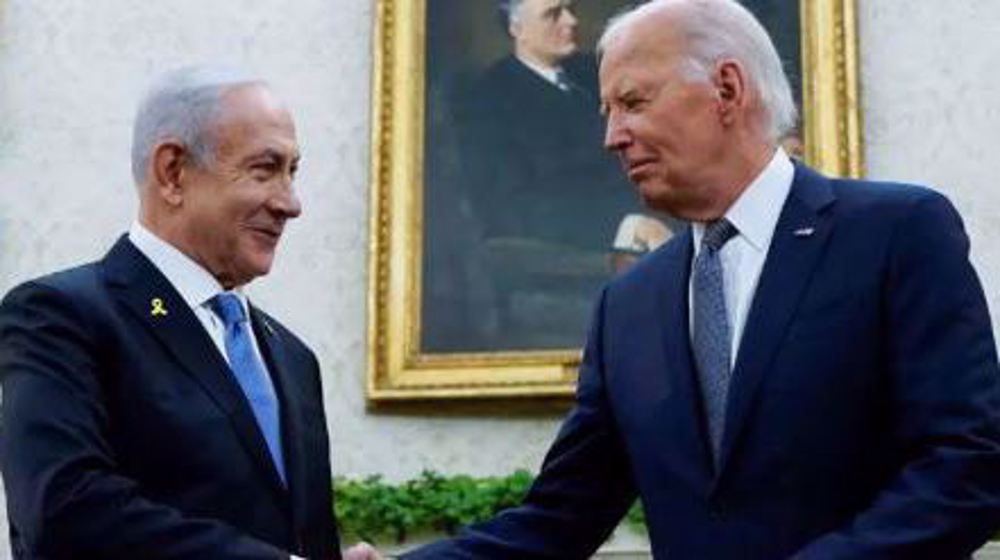Pentagon chief threatens Iran with war, despite nuclear agreement
US Secretary of Defense Ashton Carter has once again threatened Iran with war despite the conclusion of nuclear talks between the Islamic Republic and the P5+1 group of countries.
Testifying before the US Senate Armed Services Committee, Carter said the agreement would not limit Washington’s ability to respond with military force against Iran if needed.
"Iran is aggressively seeking to advance its hegemonic ambitions," alleged Republican Senator John McCain, the chairman of the committee.

McCain added that the nuclear agreement would "unshackle” Tehran in its “long-held pursuit of conventional military power.”
Carter argued that the nuclear accord places "no limitations on what the Department of Defense can and will do to pursue our defense strategy" in the Middle East region.
"If Iran were to commit aggression, our robust force posture ensures we can rapidly surge an overwhelming array of forces into the region, leveraging our most advanced capability, married with sophisticated munitions that put no target out of reach," he said.
"We will continue to maintain a strong military posture to deter aggression," he said in his earlier remarks during the hearing.
"We're continuing full speed ahead, standing with our friends, standing up to ISIL, and standing against Iran's malign activity," he added.
US Secretary of State John Kerry, Energy Secretary Ernest Moniz and Chairman of the Joint Chiefs of Staff Martin Dempsey were also present in the meeting.

The Obama administration has been trying to allay Republican American lawmakers’ concerns over the conclusion of Iran nuclear talks reached between Iran and the P5+1 group of countries - the US, Britain, France, Russia, China, and Germany – in the Austrian capital, Vienna, on July 14.
According to the text of the Joint Comprehensive Plan of Action (JCPOA), Iran will be recognized by the United Nations as a nuclear power and will continue its uranium enrichment program.
But some restrictions will be placed on Iran’s nuclear program in exchange for the removal of sanctions against the Islamic Republic.
Most Republicans oppose the nuclear agreement with Iran, but they need a two-thirds vote in both chambers of Congress to override a possible presidential veto, and to reach that threshold, Republicans need Democratic support.
On July 19, on his way to Israel, Carter said the nuclear agreement with Iran does not prevent Washington from using military force against Iran if it deems a military option necessary.

"One of the reasons why this deal is a good one is that it does nothing to prevent the military option," Carter told reporters on board his flight to Tel Aviv.
He went on to say that the United States is “preserving and continually improving" such a military option should Iran violate the terms of the nuclear agreement.
VIDEO | New Delhi chokes under toxic smog as air quality remains at hazardous levels
VIDEO | Press TV's news headlines
VIDEO | ICC's arrest warrant for Netanyahu to worry Western politicians: Former British diplomat
Iranians protest against Israel after Netanyahu ICC warrant
Germany undecided on complying with ICC arrest warrants for Israeli war criminals
VIDEO | Former FBI agent criticizes US Congress for 'outright corruption'
IRGC chief urges Muslim countries to cut aid routes to Israel
'New chapter in cooperation': Iran, Venezuela sign new MoUs










 This makes it easy to access the Press TV website
This makes it easy to access the Press TV website